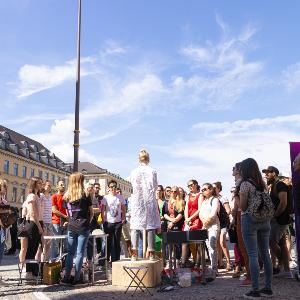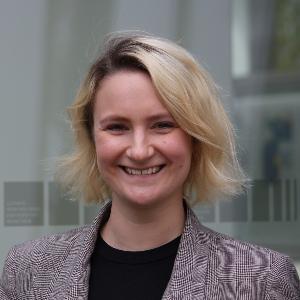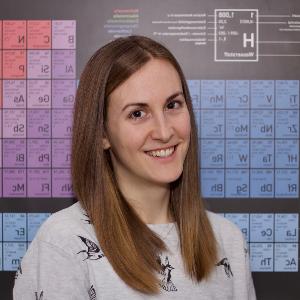Soapbox Science: Science for All
20 Jul 2022
At the Soapbox Science event in Munich, twelve female scientists from key research institutions present their disciplines. Their most important accessory: a soapbox!
20 Jul 2022
At the Soapbox Science event in Munich, twelve female scientists from key research institutions present their disciplines. Their most important accessory: a soapbox!

What does a soapbox have in common with science? Not much, you might think. Most people associate science with venerable institutions to which only a select audience has access. Not for no reason are they often referred to as an ivory tower. But that is exactly what Soapbox Science wants to change with the help of a soapbox: The aim is to show that science is for everyone.
On Saturday, 23 July 2022 from 2 to 5 p.m., twelve female scientists from key research institutions will be presenting their disciplines in German and English at Munich’s Odeonsplatz.
Two of LMU’s scientists, Sophie Gutenthaler and Vanessa Luzak, will be there. For both of them it will be their first Soapbox Science event, but Gutenthaler is already familiar with the concept from Youtube. She is thus well prepared for what will happen at Soapbox Science.
“They set up four wooden boxes for the speakers to stand on, and then four ‘lectures’ take place simultaneously. These are not speeches that are prepared down to the last detail, they are tailored very individually to the audience present. There may be children, young people, older people — a broad spectrum of people, and of course they all have quite different levels of prior knowledge. The audience can ask questions, which is why you have to be very flexible in your lectureand you can’t just stubbornly rattle off your text.”
It’s a popular concept. The last Soapbox Science event at Odeonsplatz was attended by 1,700 people. The idea goes back to the famous Speaker’s Corner in London’s Hyde Park, where since 1872 an area has been reserved for public speeches to be made on any topic. In order to make themselves better heard and more visible, the speakers often climbed onto soapboxes they had brought with them — hence the name. The format for Soapbox Science, which is based on the London model, also originated in England. This year, 11 countries and 35 cities are taking part, with Berlin and Bonn joining Munich to participate from Germany.

Vanessa Luzaks doctoral thesis focuses on how parasites regulate their genes to trigger infections. Photo: Private
The intention of Soapbox Science is to communicate science in easy terms and make it accessible. The scientists explain complex topics as simply as they can. Luzak, who is doing her doctorate in physiological chemistry, plans to explain how parasites known as trypanosomes trick the immune system. Gutenthaler, who is currently pursuing her doctorate in bioinorganic chemistry, will talk about rare earth metals. “One of the key messages I have is that rare earths may be called that, but they’re not rare at all,” she laughs.
She will bring along certain props to illustrate her points as vividly as she can. These will include a computer hard drive where the audience can see the neodymium magnet, little vials of rare earth oxides, or cards with pictograms explaining what the respective metals are used for. The questions she wants to explain to the interested listeners are: “What do we use these metals for? Why are they important to us? What is problematic about them? And how can we use these metals sustainably, and does nature perhaps have a solution for us here?”

Sophie Gutenthaler is pursuing a doctorate in bioinorganic chemistry on rare earth metals. Photo: Private
But Soapbox Science aims to do more than just generate enthusiasm for science. The event is also there to draw attention to the low percentage of women professors in academia. “For years, Bavaria has been the only German state whose percentage of female professors remains stubbornly below 20 percent,” explains Dr. Margit Weber, LMU’s women’s representative, who is one of the organizers of Soapbox Science. “This means that the Free State of Bavaria has come last in the nationwide rankings for years — even though 50 percent or more of our state’s students are female.” It’s an observation that Luzak and Gutenthaler have also made.
“In the bachelor’s degree program there were still at least as many female students as male students, and even at master’s level it’s still quite balanced, then in the doctoral studies it’s maybe going down a bit already, but the proportion of women only really starts to drop from the postdoctoral phase onwards, in the Habilitation stage and in professorships,” says Gutenthaler.
Thus, it was a while until she had her first chemistry lecture with a female professor. “I was really deeply impressed the first time I saw my current boss, Lena Daumann, in a lecture. I was sitting in there and thinking to myself, this is exactly what I always wanted to see.”
That is also the reason why Gutenthaler wanted to take part in Soapbox Science: “It’s super important for people to see someone who looks like them doing something specific, like science. Because that’s when you realize, okay, cool, I can do that too.”
The fact that fewer women work in academia is due less to a lack of interest than to systematic reasons. Yet diversity is important for research in any discipline. “Not just women, but the full diversity of people we have to offer is important for science,” agrees Gutenthaler.
If only a small subsegment of society did science and worked in academia, a great many things would remain hidden. “That doesn’t reflect the complexity of our world and exploits only a fraction of its capacity,” says Luzak. Gutenthaler agrees: “Different backgrounds contribute different perspectives — resulting not only in diverse questions but also in different approaches to problems and ways of finding solutions.”
Not just women, but the full diversity of people we have to offer is important for science.Sophie Gutenthaler, PhD in bioinorganic chemistry at the LMU
Moreover, the people who do science decide what science it is they want to do. Women would possibly devote themselves to different questions than men. “Especially if you look at medicine,” says Gutenthaler, “it is to the disadvantage of women that this field has been so male dominated for such a long time. For example, research on endometriosis hasn’t had the same focus that it might have had if there had actually been women doing research on it who were suffering from endometriosis themselves.”
Diversity, a term that encompasses all people, is therefore important for science that is inclusive and diverse and can thus advance society, she says. And that’s exactly why Sophie Gutenthaler will get up on one of the soapboxes on Saturday and show people that science is for everyone!
Is she nervous about it? Gutenthaler laughs: “It’ll be fine!"
The Soapbox Science Event will take place on Saturday, 07/23-22 from 2pm - 5pm at Odeonsplatz in Munich. More information here.